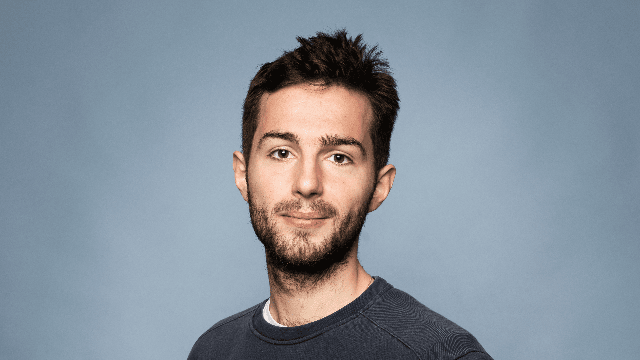#1Mois1Engagé : Geoffroy Gourdain (E22) "The responsibility of companies is to return to their primary mission, the one that meets a societal need"
02.14.2025
Geoffroy pursued a Master of Management at ESSEC Grande École, focusing on ecological and social transition and impact finance.
In 2022, he entered the real estate and construction sector by joining the Observatoire de l’Immobilier Durable (OID), an organisation dedicated to the industry's ecological transition. His work mainly revolves around climate mitigation and forward-looking analysis at the national and European levels.
-----------------------------------------------------------------------------------------------------------------------------------
What is your background, and what made you interested in CSR?
I followed the ESSEC Grande École curriculum, where I discovered Corporate Social Responsibility (CSR) in two stages. First, the professional experiences integrated into the program sparked my curiosity about how these topics are incorporated into corporate strategy. Then, I pursued the Ecological and Social Transition for Businesses academic track. After completing a final-year internship in impact finance, I leapt and decided to fully commit to sustainability topics by joining the Observatoire de l’Immobilier Durable (OID), which drives the ecological acceleration of the real estate and construction sector.
How does CSR manifest in your daily life?
Today, my work at OID is entirely dedicated to sustainability issues, strongly emphasising environmental challenges.
CSR is embedded in both the content and form of our work. On the content side, our main topics include climate change mitigation and adaptation, biodiversity, and sustainable finance. On the form side, most of our research and tools are free and accessible to everyone.
With a focus on monitoring and forward-looking analysis, I rely on our internal team's deep expertise and our members' knowledge to anticipate emerging environmental and social challenges in real estate.
How do you define CSR?
Beyond the formal definition, every business must reconnect with its primary mission, which should address a social or societal need.
In real estate, this means ensuring that buildings shelter and protect people and activities under dignified conditions.
From this foundation, companies in the sector are responsible for sustaining this mission in the face of climate change and biodiversity loss while limiting their contribution to these crises. CSR is, above all, about rediscovering this core purpose and working to preserve it.
How is CSR a Business Catalyst, and What Kind of ROI Does It Generate?
CSR has extended two significant benefits to the business model.
The first is linked to the anticipatory work it requires. By encouraging companies to refocus on their responsibility and consider both the risks they may face and the risks they may create for society, CSR forces a preventive approach that benefits not only the environment and society but also the company itself.
Secondly, it provides a common framework for reflection. The idea that CSR is merely a vague theoretical concept is a misconception, far removed from the reality that requires addressing concrete challenges. In highly siloed industries such as real estate, CSR brings all stakeholders onto a common platform and breaks down barriers between different professions.
What Would You Like to Say to ESSEC Alumni from the Club and Beyond?
With all humility, I still have limited experience, and above all, I want to learn from those who have dedicated more time to these crucial and fascinating issues.
ESG challenges are highly diverse and complex, and the variety of solutions we can develop will largely depend on the diversity of perspectives and people working on them.

comments0
You don't have the rights to read or add a comment.
Suggested Articles


